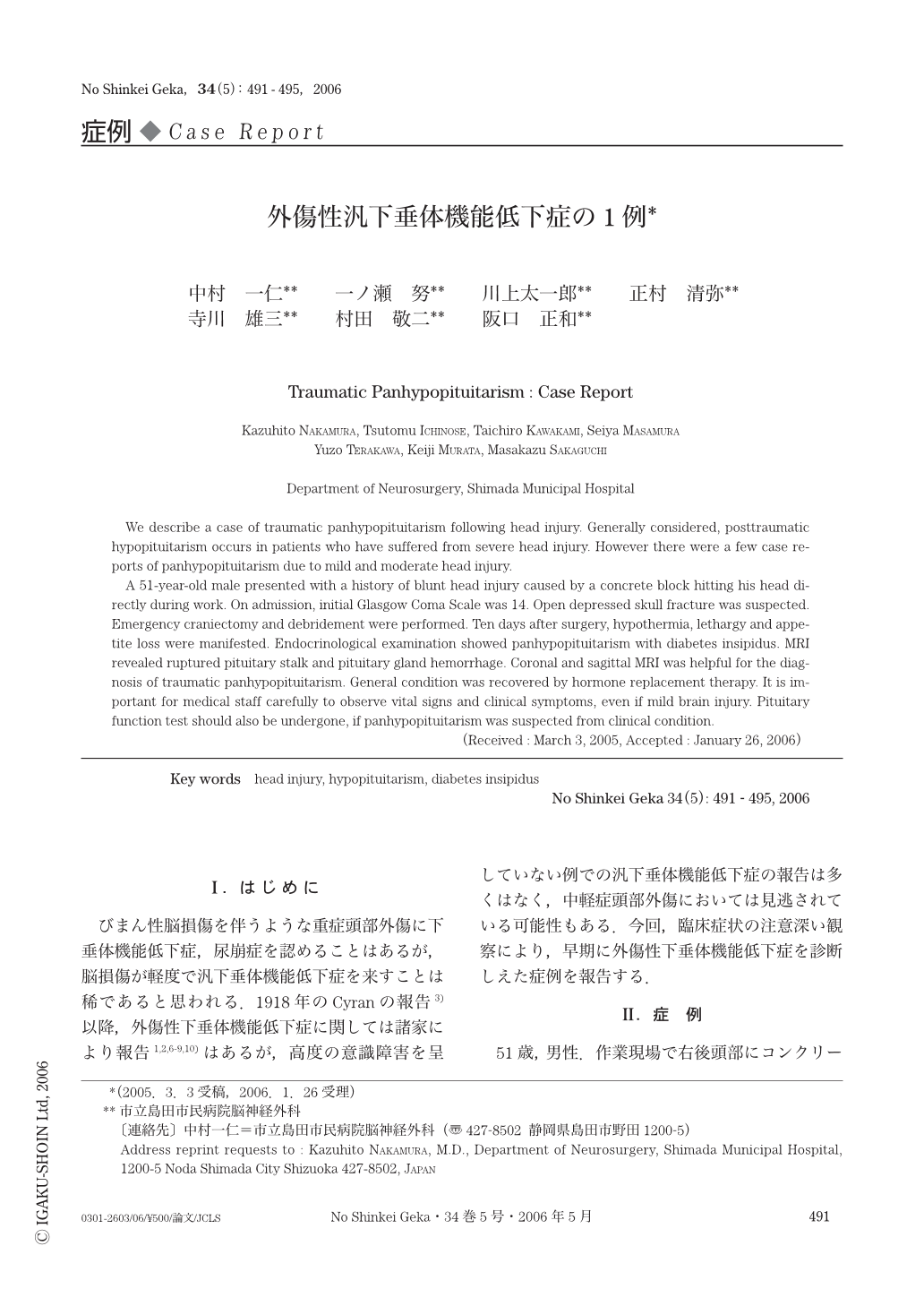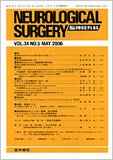Japanese
English
- 有料閲覧
- Abstract 文献概要
- 1ページ目 Look Inside
- 参考文献 Reference
Ⅰ.は じ め に
びまん性脳損傷を伴うような重症頭部外傷に下垂体機能低下症,尿崩症を認めることはあるが,脳損傷が軽度で汎下垂体機能低下症を来すことは稀であると思われる.1918年のCyranの報告3)以降,外傷性下垂体機能低下症に関しては諸家により報告1,2,6-9,10)はあるが,高度の意識障害を呈していない例での汎下垂体機能低下症の報告は多くはなく,中軽症頭部外傷においては見逃されている可能性もある.今回,臨床症状の注意深い観察により,早期に外傷性下垂体機能低下症を診断しえた症例を報告する.
We describe a case of traumatic panhypopituitarism following head injury. Generally considered,posttraumatic hypopituitarism occurs in patients who have suffered from severe head injury. However there were a few case reports of panhypopituitarism due to mild and moderate head injury.
A 51-year-old male presented with a history of blunt head injury caused by a concrete block hitting his head directly during work. On admission,initial Glasgow Coma Scale was 14. Open depressed skull fracture was suspected. Emergency craniectomy and debridement were performed. Ten days after surgery,hypothermia,lethargy and appetite loss were manifested. Endocrinological examination showed panhypopituitarism with diabetes insipidus. MRI revealed ruptured pituitary stalk and pituitary gland hemorrhage. Coronal and sagittal MRI was helpful for the diagnosis of traumatic panhypopituitarism. General condition was recovered by hormone replacement therapy. It is important for medical staff carefully to observe vital signs and clinical symptoms,even if mild brain injury. Pituitary function test should also be undergone,if panhypopituitarism was suspected from clinical condition.

Copyright © 2006, Igaku-Shoin Ltd. All rights reserved.


